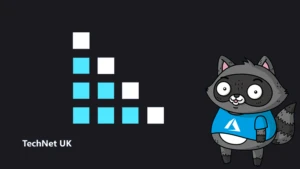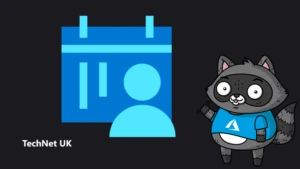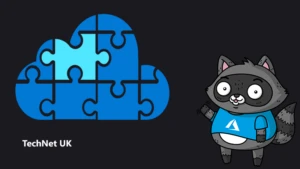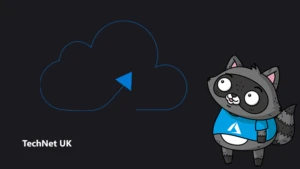
A look at the announcements from Microsoft Build 2023
This year’s edition of Microsoft Build has now wrapped up, but don’t worry if you missed it! The high-quality sessions and keynotes from across the two days are available to watch on-demand via the Microsoft Build Session Catalogue.
The event brought us many surprises, so just in case you couldn’t tune in live, let’s walk through some of the key announcements.
Azure AI
With the continual advancements being made in AI, solutions are rapidly changing to meet the needs of users. Microsoft Azure AI Service has several new capabilities to help customers increase productivity, efficiency and content safety for customers.
Updates to Azure OpenAI Service, now in preview, will include enhancements like Azure AI Studio, which will better enable organisations to combine Azure OpenAI Service with their data; a Provisioned Throughput Model, which will offer dedicated/reserved capacity; and plugins that will simplify integrating external data sources and streamline the process of building and consuming APIs.
Azure AI Content Safety, a new Azure AI service, will empower businesses to create safer online environments and communities. Models are designed to detect hate, violent, sexual and self-harm content across languages in both images and text. The models assign a severity score to flagged content, indicating to human moderators what content requires urgent attention.
Vector search for Azure Cognitive Search, the retrieval system for new large language models (LLM) apps, is coming soon in preview. Vector search allows developers to easily store, index and search by concept in addition to keywords, using organisational data including text, images, audio, video and graphs.
New capabilities, now in preview for Azure Cognitive Service for Language, will include the ability for developers to customise summarisation, in addition to the entity recognition, text classification and conversational language understanding (CLU) features already announced, and are all powered by Azure OpenAI Service.
Azure Machine Learning drastically improves machine learning professionals’ ability to operationalise responsible generative AI solutions by enabling evaluation at all phases of the model lifecycle. Updates to Azure Machine Learning include:
- Prompt flow, in preview soon, will provide a streamlined experience for prompting, evaluating and tuning large language models. Users can quickly create prompt workflows that connect to various language models and data sources and assess the quality of their workflows with measurements, such as “groundedness,” to choose the best prompt for their use case.
- Support for foundation models, in preview, will provide native capabilities to fine-tune and deploy foundation models from multiple open-source repositories using Azure Machine Learning components and pipelines.
- Responsible AI dashboard support for text and image data, now in preview, will enable users to evaluate large models built with unstructured data during the model building, training and/or evaluation stage. This helps users identify model errors, fairness issues and model explanations before models are deployed, for more performant and fair computer vision and natural language processing (NLP) models.
- Model monitoring, in preview, will enable users to track model performance in production, receive timely alerts and analyse issues for continuous learning and model improvement.
Azure Data
Microsoft Fabric, now in preview, delivers an integrated and simplified experience for all analytics workloads and users on an enterprise-grade data foundation. It brings together Power BI, Data Factory and the next generation of Synapse in a unified software as a service (SaaS) offering to give customers a price-effective and easy-to-manage modern analytics solution for the era of AI.
Power BI has several new updates that will empower organisations to turn data into insights immediately with an industry-leading BI platform and include:
- Copilot in Power BI, in preview, will infuse the power of large language models with an organisation’s data to help uncover and share insights faster.
- Power BI Direct Lake, in preview, is a new storage mode within Power BI datasets that will allow organisations to unlock massive data without having to replicate it, by seeing straight through to the data in the lake.
- Power BI Desktop Developer Mode, in preview, will enable developer-centric workflows through Git integration for Power BI datasets and reports.
Azure Cosmos DB is introducing a range of new enhancements to optimise costs, performance and developer productivity. These enhancements demonstrate Microsoft’s commitment to improving the user experience for app developers.
Azure SQL Database Hyperscale elastic pools is introducing a shared resource model for Hyperscale databases, now in preview. This update will help developers build and manage new apps in the cloud and scale multiple databases that have varying and unpredictable usage demands.
Developer Community
Microsoft is launching a variety of training and documentation on Microsoft Learn to help people leverage the power of AI.
The newly released content helps technology professionals build expertise and gain new skills in the latest AI innovations, including how to:
- Use Azure OpenAI Service to summarise text, get code suggestions and generate images for a website.
- Add intelligence to apps – and find insights – by creating tailored AI models within Power Apps.
- Use Power Virtual Agents to build adaptable chatbots that use AI.
- Code suggestions with GitHub Copilot to take projects to the next level.
Power Platform
Next-generation AI in Power Pages is revolutionising how customers build and launch data-centric websites for their businesses. With Copilot in Power Pages, now in preview, users can increase productivity and speed up the website building process by generating text, creating complex forms, contextual chatbots and web page layouts and creating and editing image and site design themes for rapid visual setup and customisation. This is possible in minutes using natural language input and intelligent suggestions.
Power Virtual Agents continues to help developers create more intelligent chatbots using the latest AI capabilities. New features include the ability for Power Virtual Agents to generate dialogue and complete actions, Azure conversational language understanding (CLU) integration, and the expansion of previously announced features, including conversation boosters in Power Virtual Agents.
Catalog in Power Apps, a new feature within Power Platform now in preview, will give developers and makers a place to publish and share the building blocks that underlie their apps. With every new app that developers create, their organisation will enjoy the benefits of a robust catalog that reduces the time and cost of each new app.
With Power Virtual Agents (PVA), users can easily author an intelligent Microsoft Teams bot using natural language to build and point to any website available within the tenant and Teams users. This update, now in preview, will democratise building company-wide help desk bots, such as human resources bots, and department/team-wide bots, such as onboarding bots.
And more!
This is just a small selection of announcements from Build 2023! Be sure to check out the Book of News to see everything, which includes announcements on AI, Security, Windows and more.
Missed the show? Check out the sessions you might have missed in the Session Catalogue, and follow the conversation on the UK Twitter channel, @MSDevUK, as well as on the #MSBuild hashtag!




